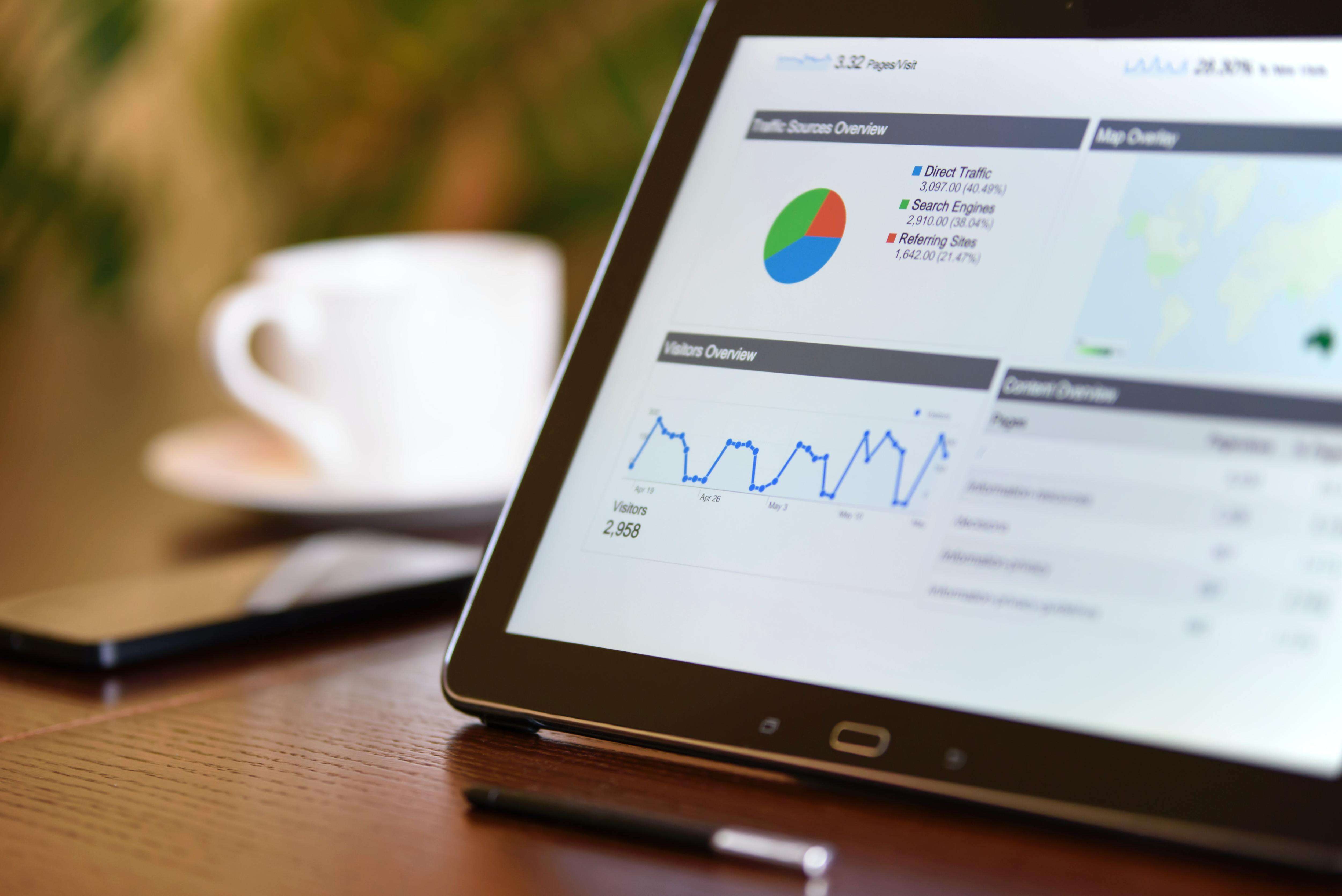3 of the Most Important Google
Analytics Reports to Audit Your Marketing Strategy

By Christie Osborne, Mountainside Media
At its core, a well-run business is the result of many wise decisions. From what to offer to how to allocate your budget, your success depends on your ability to make smart choices and adapt to the changes in your market. But what is a decision without data to back it up?
Let’s paint a picture of how uninformed decision-making can lead to wasted time and money. I’ve worked with a couple of business owners seeking support with Pinterest advertising because they noticed high rates of traffic coming from the platform and wanted to leverage their presence. On the surface, this strategy makes a lot of sense and it’s one I recommend often.

Before doing any ad work, my first step is to audit Google Analytics to evaluate website traffic and highly-converting referral sources. When I dug into these entrepreneurs’ data, I saw that they were, indeed, getting a lot of visitors from Pinterest. However, the traffic was not converting into inquiries. In most cases, visitors were consuming a single blog post or gallery content before leaving the website.
In other words, what seemed like a profitable referral source was ultimately producing junk traffic. People were coming from all across the country in search of wedding inspiration, but despite the heavy traffic, they were not generating inquiries or sales.
By the time they reached me, these wedding professionals had already invested time and money into building an organic Pinterest audience. Now, they were ready to spend even more time and money advertising for traffic that was essentially useless. Doesn’t make so much sense anymore, right?
That is just one example of how website analytics can save you money and point you in the right marketing direction — but first, you need to collect the data.
Instead of diving headfirst into a shiny new marketing tactic, you must know where your website visitors come from, whether they are qualified, and how likely they are to convert. The goal is to leverage the channels that produce the most conversions proportionate to traffic.
The good news is that you only need to look at three reports on Google Analytics each month to supercharge your marketing strategy.
Listed in order of importance, these three reports will provide insights to inform smart, data-based marketing decisions that attract and convert your ideal customers with ease.
Conversions
The conversions report provides the most valuable data Google Analytics has to offer, but you must set up conversion goals before it starts collecting insights. Most business owners don’t know to activate this report, leaving vital metrics off the table when making business decisions. If you’re not sure how to set it up, it’s worth hiring an expert so you can leverage conversion data to optimize your marketing strategy.
Otherwise, you’ll see traffic coming to your site without any way to know what’s converting and what isn’t. Just like the Pinterest example at the beginning of this post, traffic that doesn’t convert into inquiries or sales ends up as nothing but junk.
Without the full context of your conversions, it’s easy to get distracted and waste your hard-earned time and money on organic and paid content placed in the wrong channels.
Fortunately, the solution is easy here: Set up conversion goals in Google Analytics! Once you do, you can track inquiries in the conversions report and map them back to referral traffic to see where to focus your efforts (more on that later!).
Geography
Qualified website traffic comes from visitors in a position to do business with you. Whether you’re a service provider, e-commerce seller, or brick-and-mortar shop owner, your ideal clients fall in a certain geographic area. It may be hyper-local or widespread; either way, you must confirm traffic aligns with your target audience’s demographics.
Simply put, if you’re not attracting people from a location where they’re able to work with you, they are not going to inquire. You’re barking up the wrong proverbial tree, so all the traffic in the world won’t help your case. That’s where your geography report comes in.
The geography report is as simple as it sounds, revealing where in the world your website visitors are located. If everything looks qualified from the regions you serve, underperforming marketing efforts are likely due to a leak elsewhere in your funnel.
However, if you see a lot of traffic from outside your service area (including overseas junk traffic), it’s time to figure out how you can bring attention back to your market. For instance, you could run local Google ads, produce long-form content with geographic keywords, or build a stronger local referral network.
Referrals
Referral data can reveal a wealth of information about your marketing funnel’s strengths and weaknesses, as it sheds light on how your website visitors find your website.
However, this report does not provide conversion data, so you need to cross-analyze referral sources with your conversions report. Otherwise, you will waste time and money chasing volume instead of making strategic data-based decisions.
Once you set up conversion goals, you’ll get far more out of a simple referrals report. Identify the sources sending the most inquiries so you can maximize efforts there — whether it’s increasing ad spend, posting more on social media, or submitting more real weddings to certain media outlets.
Likewise, pairing referral and conversion data also reveals traffic sources that don’t convert, showing you where to adjust your strategy or pull back on your budget. So make sure to always assess your campaigns with link tracking!
Google Analytics does not have to feel difficult, overwhelming, or time-consuming. In as little as 30 minutes each month, you can use these three simple reports to go from confused to clear about what works and doesn’t work in your marketing mix.
Christie Osborne is the owner of Mountainside Media, a company that helps event industry professionals brands develop scalable marketing strategies that bring in more inquiries and leads. Christie is a national educator with recent speaking engagements at NACE Experience, WIPA and the ABC Conference. Christie regularly shares industry insight in her Catersource column, as well as on SpecialEvents.com, Wed Altered, Risingtide Society, WeddingIQ and NACE’s industry blog.




